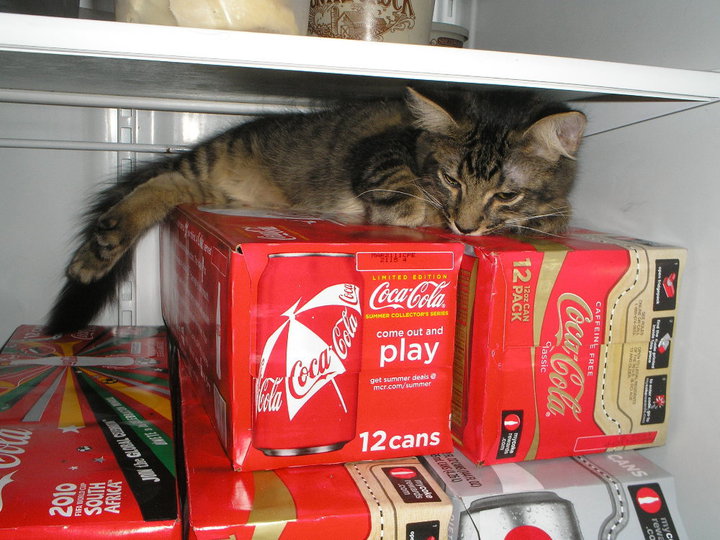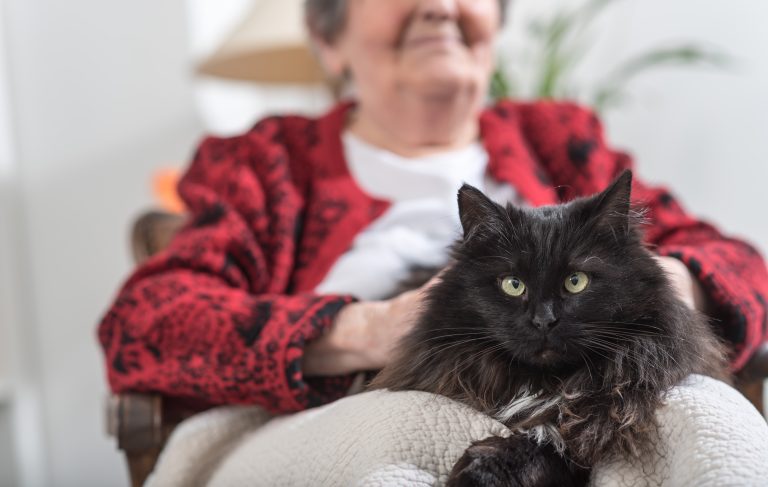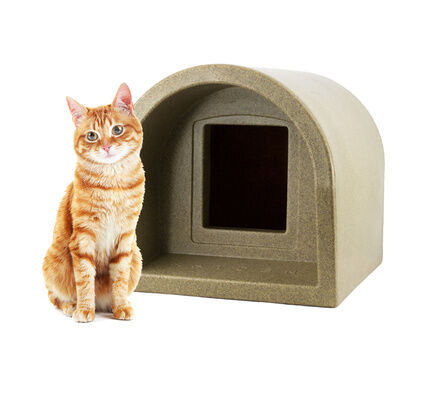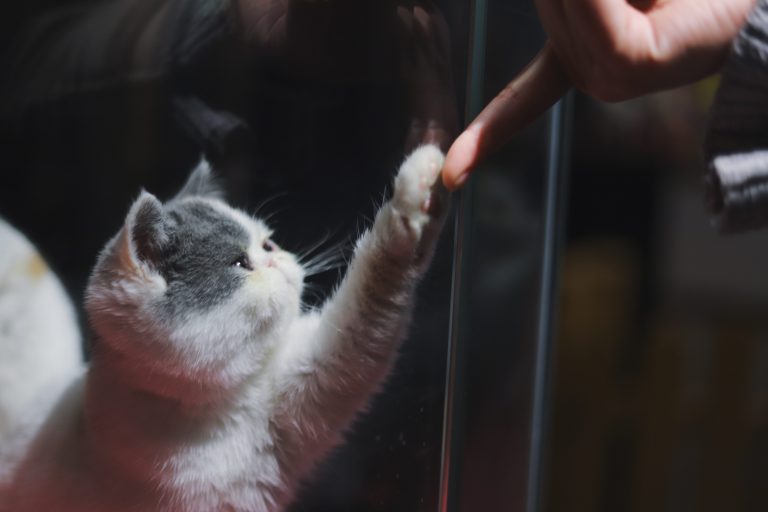Why Is My Cat’S Fur So Soft?
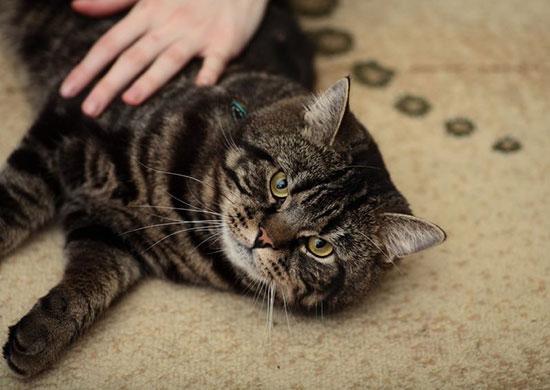
Cats have soft fur due to their unique combination of hair structure and natural oils. Their fur is comprised of three layers: a top layer of guard hairs, a middle layer of awn hairs, and a bottom layer of down hairs, which provide insulation and softness.
Additionally, cats naturally produce oils from their skin, which help to moisturize and condition their fur, giving it a silky and soft texture. These oils also contribute to the glossy appearance of their coat, making it appear even softer. The softness of a cat’s fur is not only pleasing to the touch but also serves as a protective and functional feature.
Understanding The Biological Factors
Cats’ fur is incredibly soft due to biological factors such as the presence of multiple layers and types of hair, as well as the production of natural oils that keep their fur smooth and silky. Understanding these factors helps explain why your cat’s fur is so irresistibly soft.
Factors contributing to the softness of a cat’s fur
When it comes to the softness of a cat’s fur, there are several biological factors at play. Understanding these factors can help us appreciate why some cats have incredibly soft fur while others may have a coarser texture. Whether you’re a proud cat owner or simply cat-curious, delving into the biological aspects of fur texture will shed light on this fascinating subject.
Examining the role of genetics in fur texture
One key factor that determines the softness of a cat’s fur is genetics. Cats inherit their fur characteristics from their parents, just like humans inherit physical traits from their ancestors. Genetic variations can influence the texture, density, and even length of a cat’s fur. Some breeds are known for having exceptionally soft fur due to specific genetic traits that have been selectively bred over generations. Conversely, certain genetic factors can lead to rougher or thicker fur.
The influence of breed and coat type on fur softness
Apart from genetics, a cat’s breed and coat type also play a significant role in determining fur softness. Different cat breeds exhibit varying coat textures, ranging from silky and velvety to dense and woolly. For instance, breeds like the Ragdoll and the Persian are renowned for their luxuriously soft and silky fur. On the other hand, breeds such as the Maine Coon and the Scottish Fold may have denser fur that appears coarser.
Factors like coat length and the presence of an undercoat also contribute to a cat’s fur texture. Cats with longer fur tend to have more pronounced softness due to the increased surface area. Additionally, cats with an undercoat, like the Siberian or the Norwegian Forest Cat, may have a fluffier appearance and softer texture.
A cat’s fur softness is influenced by various biological factors, including genetics, breed, coat type, length, and the presence of an undercoat. Understanding these factors gives us a glimpse into the fascinating world of feline fur. So, the next time you run your fingers through your cat’s velvety-soft fur, remember the biology behind it all.
The Importance Of Cat Grooming
The importance of cat grooming cannot be stressed enough when it comes to maintaining the softness and overall health of your furry friend’s fur. Regular grooming not only helps in keeping your cat’s coat clean and tangle-free, but it also plays a significant role in ensuring that their fur remains irresistibly soft to the touch. Let’s take a closer look at why grooming is so vital in preserving the plushness of your cat’s fur.
The Impact Of Grooming On The Texture Of A Cat’s Fur
Grooming has a direct impact on the texture of a cat’s fur, and it influences just how soft and luxurious it feels. Cats groom themselves instinctively, using their tongues to clean their coats and remove any dirt, debris, or loose hair. This natural grooming process helps distribute their skin’s natural oils, which are responsible for keeping the fur moisturized, smooth, and velvety. However, sometimes, due to factors like age, health issues, or excessive shedding, cats may need a little extra help in maintaining the texture of their fur.
How Regular Brushing And Combing Can Enhance Fur Softness
Regular brushing and combing are highly effective methods to enhance the softness of your cat’s fur. By incorporating these grooming practices into your cat’s routine, you will help remove any loose hairs, prevent matting, and distribute those crucial natural oils evenly throughout their coat. Taking the time to brush your cat regularly not only promotes healthy skin and coat, but it also creates a bonding experience for you and your feline companion. Remember to use a brush or comb specifically designed for cat grooming and start at the head, working your way down to the tail in gentle strokes.
The Benefits Of Professional Grooming For Maintaining Soft Fur
While regular at-home grooming is essential, there are undeniable benefits to seeking professional grooming services for your cat. Professional groomers possess the expertise and the right tools to handle grooming tasks that you may find challenging to tackle yourself. They can perform tasks such as trimming your cat’s nails, cleaning their ears, and even providing a relaxing bath. Additionally, professional groomers are skilled in identifying and addressing any underlying skin issues that may be affecting the softness of your cat’s fur, ensuring that your pet receives the proper care and treatment needed to maintain the plushness of their coat.
Proper Nutrition For Soft And Healthy Fur
Soft and healthy fur in cats is a result of proper nutrition. A well-balanced diet rich in essential nutrients promotes strong hair follicles and a shiny coat.
The Role Of Diet In Promoting Soft Fur
When it comes to maintaining a soft and healthy fur, proper nutrition plays a crucial role. The food your cat consumes directly impacts the quality and texture of its coat. Just like humans, cats require a balanced diet to ensure optimum health, and that includes a lustrous, velvety fur. By providing your feline companion with the right nutrients, you can help promote softness and shine in their coat.
Essential Nutrients For Maintaining A Healthy Coat
There are several key nutrients that are essential for maintaining a healthy coat in cats. These nutrients work together to nourish the skin and hair, ensuring that the fur remains soft and silky. Here are some important elements to include in your cat’s diet:
- Protein: A high-quality protein source, such as chicken or fish, is essential for healthy fur growth. Protein provides the building blocks for hair follicles and supports the production of keratin, the protein that gives fur its softness and strength.
- Fatty Acids: Omega-3 and omega-6 fatty acids are vital for maintaining a shiny and smooth coat. These healthy fats help nourish the skin, reduce inflammation, and prevent dryness and itchiness.
- Vitamins: Certain vitamins, such as vitamin A and vitamin E, are crucial for proper coat health. Vitamin A promotes the growth of new skin cells, while vitamin E protects the skin from free radicals and helps maintain moisture.
- Minerals: Minerals like zinc and copper are important for overall skin and coat health. Zinc aids in proper hair follicle function, while copper supports the formation of melanin, the pigment responsible for fur coloration.
The Importance Of Hydration And Moisture For Fur Softness
A well-hydrated cat is more likely to have soft and supple fur. Adequate hydration helps maintain the moisture balance in the skin and prevents dryness and brittleness. Encourage your cat to drink water regularly by providing fresh water in a clean bowl and consider incorporating wet food into their diet. Wet food not only provides hydration but also contains moisture that helps keep the fur sleek and soft.
Credit: www.reddit.com
Environmental Factors Affecting Fur Softness
Environmental factors such as a healthy diet, regular grooming, and a stress-free environment can contribute to making your cat’s fur soft and luxurious.
The Impact Of Climate And Weather On Fur Texture
One of the primary environmental factors that can affect the softness of your cat’s fur is the climate and weather. Just like humans, cats are sensitive to changes in temperature and weather conditions. Extreme cold or hot environments can have detrimental effects on the texture of their fur.
In colder climates, where the air is dry, your cat’s fur may become drier and coarser. This is because the lack of moisture in the air can cause the natural oils in their fur to deplete, leading to a rougher texture. On the other hand, in warmer and more humid climates, the excess moisture can make your cat’s fur appear limp and less fluffy.
To maintain your cat’s fur softness regardless of the climate, it is essential to understand how to adapt their grooming routine accordingly. Regular brushing stimulates the production of natural oils and helps distribute them across the fur, keeping it soft and moisturized. Additionally, providing your cat with a balanced diet rich in omega-3 fatty acids can promote healthy fur growth and improve its overall texture.
The Role Of Humidity In Maintaining Soft Fur
Humidity plays a crucial role in maintaining the softness of your cat’s fur. Optimal levels of humidity can help prevent dryness and brittleness, keeping the fur soft and luxurious. When the air lacks moisture, it can cause the natural oils in your cat’s skin to evaporate faster, leading to dry and rough fur.
To ensure a comfortable environment for your feline friend, consider using a humidifier during dry seasons or in areas with low humidity. This can help maintain a moderate level of moisture in the air, preventing excessive dryness that can affect their fur texture. Regular grooming and moisturizing shampoos or conditioners specifically designed for cats can also aid in preserving the softness of their coat.
Creating A Comfortable And Cozy Environment For Your Cat
Aside from climate and humidity, creating a comfortable and cozy environment for your cat also contributes to the softness of their fur. Cats thrive in environments where they feel safe, secure, and stress-free. Stress and anxiety can impact their overall health, including the condition of their fur.
Make sure to provide your cat with a dedicated space that meets their physical and emotional needs. This can include a cozy bed, scratching posts, toys, and quiet areas where they can relax undisturbed. Additionally, ensuring a clean litter box and regular playtime can help reduce stress levels and improve their fur quality.
By considering and optimizing these environmental factors, you can help maintain the softness and lustrous appearance of your cat’s fur, contributing to their overall health and happiness.
Health And Wellness Considerations
When it comes to our feline companions, their soft and luxurious fur is undeniably one of their most captivating features. As cat owners, we often marvel at the velvety texture and wonder, “Why is my cat’s fur so soft?” To truly understand the factors behind this luscious softness, it is essential to delve into health and wellness considerations. Maintaining optimal health and well-being plays a crucial role in the overall softness and quality of your cat’s fur.
How Underlying Health Issues Can Affect Fur Softness
Believe it or not, a cat’s fur condition can serve as an indicator of their underlying health. When certain health issues arise, it can have a direct impact on the softness and texture of their fur. Skin conditions, allergies, and hormonal imbalances can all contribute to a less-than-ideal fur quality. If your cat’s fur feels less soft than usual or shows signs of excessive shedding, it is essential to address any potential health concerns. Regular veterinary check-ups are crucial to identify and treat any underlying health issues that might compromise the softness of your feline friend’s fur.
Regular Veterinary Check-ups For Optimal Fur Health
Your cat’s fur health should be prioritized just like any other aspect of their well-being. Regular veterinary check-ups form the cornerstone of maintaining optimal fur health. A comprehensive examination by your trusted veterinarian can help identify any potential health issues that may be affecting your cat’s fur softness. Through blood tests, skin examinations, and a thorough evaluation of their overall health, your vet can provide valuable insights and necessary interventions to ensure your cat’s fur remains irresistibly soft.
The Importance Of Stress Reduction And A Happy Cat
Stress reduction plays a pivotal role in maintaining the softness and luster of your cat’s fur. Stress can manifest physically, resulting in dull and lackluster fur. Creating a calm and peaceful environment for your furry companion is paramount. Engage in interactive playtime, provide stimulating toys, and establish a routine that promotes relaxation. Ensuring your cat’s emotional well-being positively impacts their physical health, which ultimately reflects on their fur. A happy and stress-free cat is more likely to have soft, resilient fur that’s a delight to touch and stroke.
Frequently Asked Questions For Why Is My Cat’s Fur So Soft?
Why Is My Cat’s Fur So Soft?
Cats have an outer layer of guard hairs and an under layer of soft fur known as the down fur. The texture of their fur is influenced by genetics, grooming habits, and overall health. Regular grooming, a balanced diet, and a healthy lifestyle can help maintain your cat’s soft and silky fur.
What Can Make My Cat’s Fur Less Soft?
Several factors can affect the softness of your cat’s fur. Certain medical conditions, such as allergies or skin infections, can cause dry or brittle fur. Poor grooming habits, lack of proper nutrition, and stress can also impact the texture of your cat’s coat.
Regular veterinary check-ups and providing a balanced diet can help prevent these issues.
How Can I Make My Cat’s Fur Even Softer?
Promote proper grooming by brushing your cat regularly to remove dead hair and distribute natural oils. A healthy diet rich in essential fatty acids and proper hydration is also essential for maintaining soft fur. Additionally, creating a stress-free environment with regular playtime and providing comfortable bedding can help promote your cat’s overall well-being and contribute to their soft coat.
Conclusion
To sum it up, the softness of your cat’s fur can be attributed to various factors, including genetics, diet, and grooming habits. Ensuring that your feline friend receives a balanced diet, regular brushing, and proper care will help maintain their luxurious coat.
Remember, a healthy and happy cat will have soft and shiny fur that you and your pet can both enjoy.


